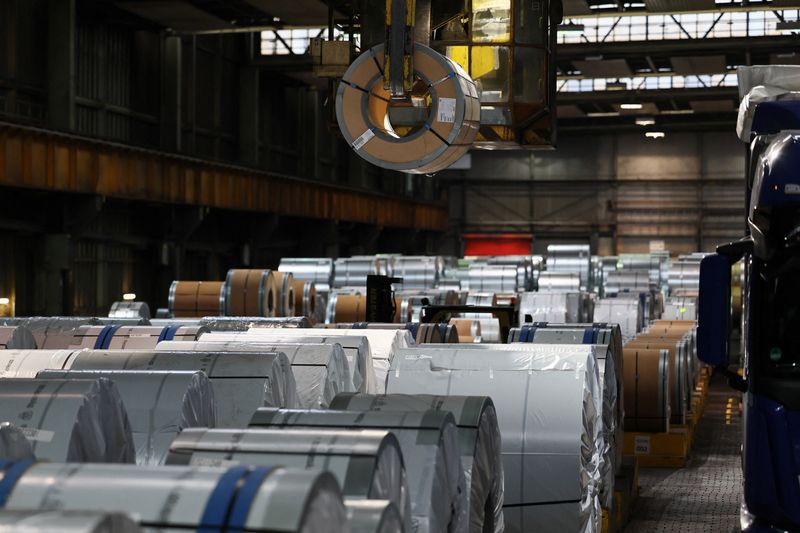German industrial output rises more than expected in August
2024.10.08 03:34
By Maria Martinez
(Reuters) -German industrial production rose by a larger than expected 2.9% in August from the previous month thanks to an increase in automotive industry output, the federal statistics office said on Tuesday.
Analysts polled by Reuters had predicted a 0.8% rise.
Still, the less volatile three-month on three-month comparison showed that production was 1.3% lower in the period from June to August than in the previous three months.
Production in the automotive industry is fluctuating considerably from month to month and this has an impact on the monthly development of production as a whole, the statistics office said.
In August, the seasonally and calendar adjusted production of motor vehicles, trailers and semi-trailers rose by 19.3% compared to the previous month, following a decline of 8.2% in July.
Production in industry – excluding energy and construction – was up 3.4% on the month after seasonal and calendar adjustment. Energy production rose 2.3% and production in construction edged up 0.3%.
The statistics office revised July’s industrial production to a 2.9% decline, from a 2.4% fall previously.
“There are currently no signs of a revival in the industrial sector,” the economy ministry said on Tuesday.
Sentiment indicators in the manufacturing sector remain gloomy and incoming orders in particular were unable to continue their slight upward trend of recent months in August, the ministry said.
German industrial orders fell by 5.8% from the previous month in August, data on Monday showed, adding to signs that manufacturing in Europe’s largest economy will not recover in the coming months.

Structural challenges including high energy prices, a slowdown in Chinese demand for German industrial goods, and the auto sector’s difficulties in scaling up electric vehicle production will continue to weigh on output, said Franziska Palmas, senior Europe economist at Capital Economics.
“The upshot is that industry will remain a drag on the German economy for a while,” Palmas said.








